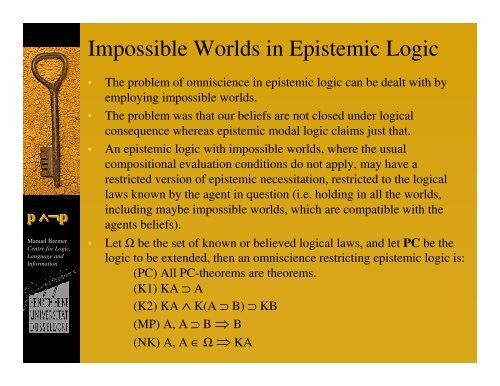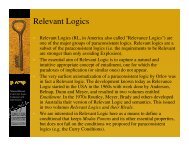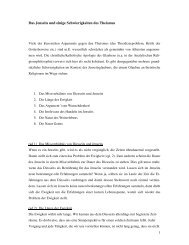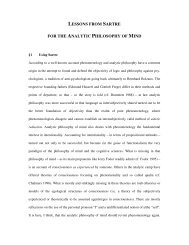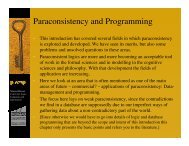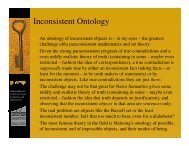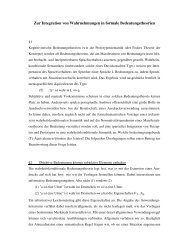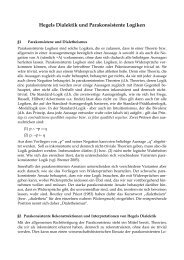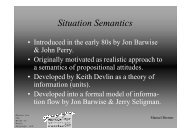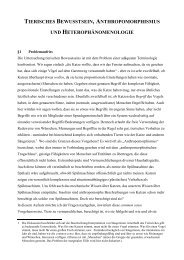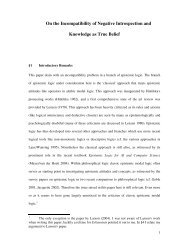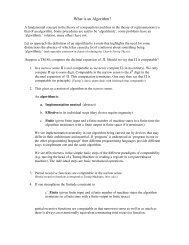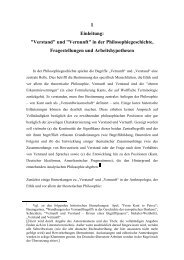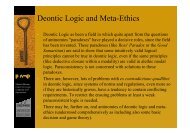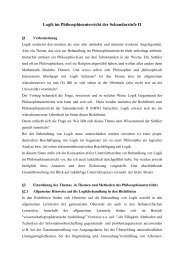Epistemology and Philosophy of Science - Bremer
Epistemology and Philosophy of Science - Bremer
Epistemology and Philosophy of Science - Bremer
You also want an ePaper? Increase the reach of your titles
YUMPU automatically turns print PDFs into web optimized ePapers that Google loves.
p ∧¬<br />
∧¬ ∧¬p ∧¬<br />
∧¬<br />
Manuel <strong>Bremer</strong><br />
Centre for Logic,<br />
Language <strong>and</strong><br />
Information<br />
Impossible Worlds in Epistemic Logic<br />
• The problem <strong>of</strong> omniscience in epistemic logic can be dealt with by<br />
employing impossible worlds.<br />
• The problem was that our beliefs are not closed under logical<br />
consequence whereas epistemic modal logic claims just that.<br />
• An epistemic logic with impossible worlds, where the usual<br />
compositional evaluation conditions do not apply, may have a<br />
restricted version <strong>of</strong> epistemic necessitation, restricted to the logical<br />
laws known by the agent in question (i.e. holding in all the worlds,<br />
including maybe impossible worlds, which are compatible with the<br />
agents beliefs).<br />
• Let Ω be the set <strong>of</strong> known or believed logical laws, <strong>and</strong> let PC be the<br />
logic to be extended, then an omniscience restricting epistemic logic is:<br />
(PC) All PC-theorems are theorems.<br />
(K1) KA ⊃ A<br />
(K2) KA ∧ K(A ⊃ B) ⊃ KB<br />
(MP) A, A ⊃ B B<br />
(NK) A, A ∈ Ω KA


